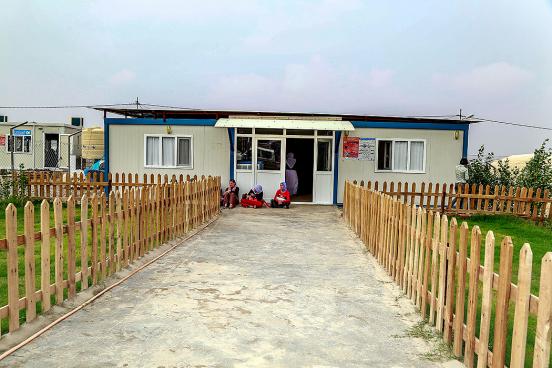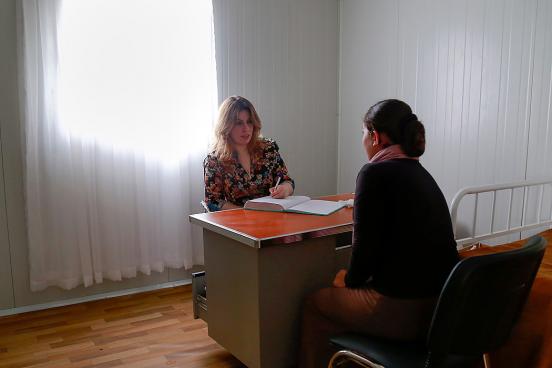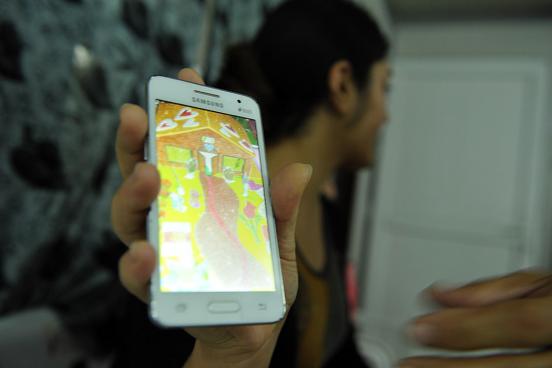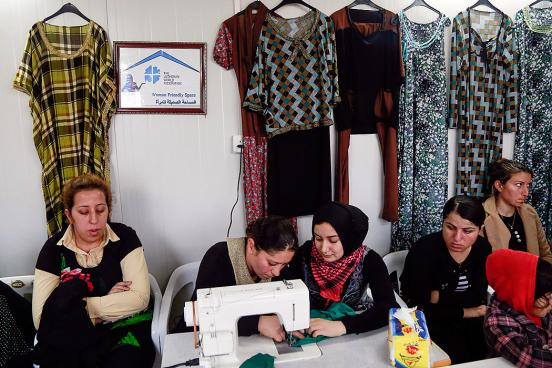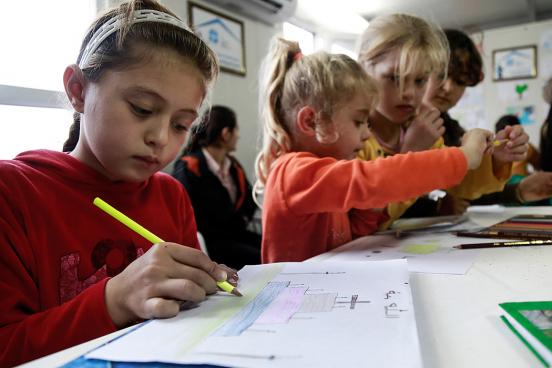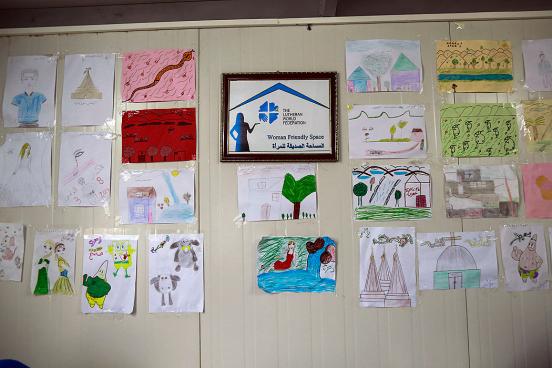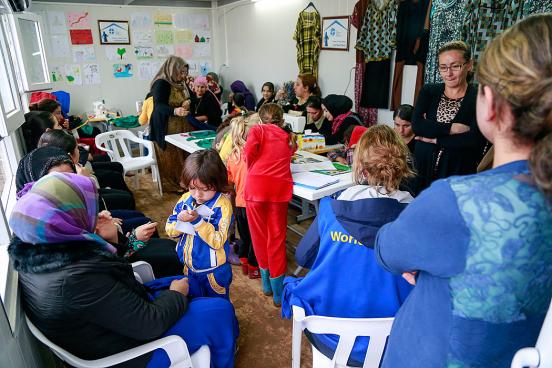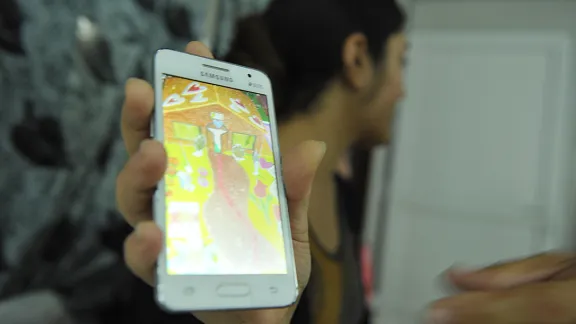
A house with many colors and hearts: Asna (not her real name) shows a painting she made in one of the crafts workshops on her mobile phone. Photo: LWF/C. Kästner
“Feel safe, free, and express themselves”
DOHUK, Iraq/GENEVA, 13 November 2015 (LWI) – When the Islamic State militia (IS) advanced on Asna’s (not her real name) village in the Sinjar mountains, her neighbor convinced the Yazidi family to stay. “I will take care of you, nobody will harm you,” their neighbor and friend, promised them. An hour later he knocked on their door again: “You have to leave now, we cannot protect you anymore. IS is capturing women and girls.”
The warning came too late. 17-year-old Asna and her entire family were captured and separated. The girl was under the custody of the militia fighters who abused her until she managed to escape. Today, she is one of the women who regularly visit a women-friendly space run by The Lutheran World Federation (LWF) in Northern Iraq. She receives counseling, medical treatment and psychosocial support to help her survive what she has been through.
“She is a non-believer”
Sitting in the container used as a women-friendly space together with a cousin, Asna relates her story. After the militia had captured the family and separated women and men, Asna, her mother and sisters were imprisoned in a school. One of the militia leaders took Asna and two 13-year olds to his house, where she was locked up in the bathroom, as her captor took the other girls with him. After a week and a failed attempt to escape, Asna was taken to another fighter’s place.
“I stayed with that man and his wife and children for two months,” she recalls. “Every time I asked about my family, he would beat me. He raped me in his home, but his wife only said: She’s a non-believer, you can do with her what you like.
One evening, when her captor let down his guard, she jumped out the window and ran down the streets of Mosul city in search for help.
This time she was lucky, someone took her in, called her uncles and with fake identity helped her to get out of the IS occupied territory and into the Kurdish Autonomous region, where her relatives were. She now lives in a camp near Dohuk, like other displaced people sharing a crowded tent with distant relatives.
“She is very precious to us”
Asna has come a long way since then. “When she first came here, she was depressed and thought about killing herself. Every day we encouraged her to continue living,” says Nadia Braim Morad, supervisor of the LWF women-friendly space. The LWF counseling and other activities help Asna to escape her congested living situation and her memories for a few hours each day. “We tell the women to be especially careful with her. She is very precious to us,” Morad says.
Asna was asked to participate in workshops and arts, to draw and to engage with other women in the center. She has made friends and sometimes even flashes a smile. She dreams of her own sewing machine and a job making clothes. She would like to finish school, but is still too traumatized to engage with people who speak Arabic. Her way back into life is done in many careful little steps.
“We could help to make her see that she is not alone,” Morad says. “She comes here every day. There is another girl with a similar experience. We try to make them feel safe, to feel free and to be able to express herself.”
Most of the time, Asna’s thoughts are on her family which she has not seen since that fateful day she was captured. She still hopes to be reunited with them. “I can’t stop thinking about my mother and sisters. I don’t know if my parents are still alive,” she says. “I pray to God that I will see my family again.”
LWF works with local partners, the Jiyan Foundation and the Kirkuk Center for Torture Victims to give counseling and psychosocial support to traumatized women and girls. Please support our work to protect these women and girls from further harassment, deprivation and suicide.
